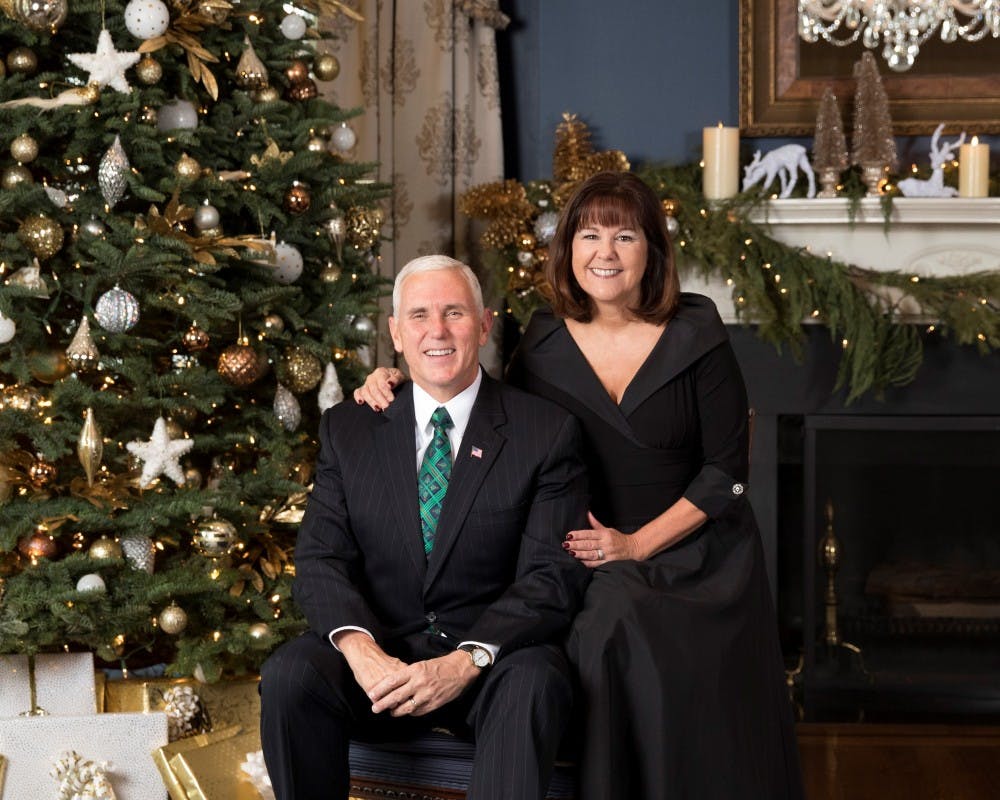The news that Karen Pence, wife of Vice President Mike Pence, will return to work at a Virginia school that requires its employees to denounce homosexuality and transgenderism has generated much controversy.
The news was met with predictable and justified outrage. Several op-eds and public figures criticized the second lady for expressing support for an institution that delegitimizes and demeans LGBTQ+ people. Still, a spokesperson for Mrs. Pence defended her, saying, “It’s absurd that her decision to teach art to children at a Christian school, and the school’s religious beliefs, are under attack.”
This sentiment was echoed by an article in National Review by David French, who called criticisms of Mrs. Pence’s job “intolerant” and commented on the danger of shaming people for maintaining anti-LGBT values: “fear and shame will do what censorship cannot — drive the Christian faith from America’s public square.”
However, Karen Pence’s values are not being criticized for their supposed Christian origins — a claim, by the way, which is contested by some Christians. Whether or not her views have a basis in any religious tradition is immaterial. All that matters — and all that is being criticized — is that such an influential figure has endorsed a school with abhorrent restrictions on its students, parents, and teachers. The idea that this is purely religious is absurd; and the truly shameful thing is that Mrs. Pence refuses to take responsibility for her beliefs, claims these views as her own, and offers her religion as an excuse for supporting discrimination.
This incident is yet another example of the apparent bigotry of the Pences: Vice President Pence has a history of semi-endorsing conversion therapy and has supported a bill in Indiana that would allow for discrimination on the basis of sexual orientation, in the name of “religious freedom.”
Each time, like clockwork, the Pences were attacked for being anti-LGBTQ+, and then their supporters responded with accusations of religious discrimination and hatred toward the faithful. Vice President Pence’s support for a president who has called for a ban on Muslims entering America and displayed affinity for anti-Semitic conspiracy theories usually goes unmentioned in these responses.
But promoting anti-LGBTQ+ beliefs and calling it religious does not make such beliefs any less malicious or any more legitimate, and it serves only to distract from what is really being debated. President Trump, a predominantly secular figure who barely pretends to be religious, is attacked just as often for his anti-LGBTQ+ policies, such as banning transgender people from the military.
This is useful to remember as debates about what should constitute culturally acceptable expression and religious freedom continue to take place on our campus and others. Whether or not a certain belief is something we want promoted at Princeton or in mainstream culture is an independent evaluation, separate from whether that belief has its roots in any sort of theology. Exempting hateful views as long as they claim to be religious would enable anyone with anti-LGBTQ+ sentiments to advance their agenda, free from the necessary public backlash.
Our collective ability to decide what is considered acceptable in our culture is a valuable tool in the effort to make LGBTQ+ acceptance the societal norm and to push any type of anti-LGBTQ+ discrimination – such as the type that Mrs. Pence’s school practices – beyond the domain of what is tolerated.
The strategy of calling hateful views part of one’s religion is a useful tactic meant to guilt people into allowing homophobia in order to appear tolerant toward people of all faiths. We must realize that we can remain tolerant of every individual of every religious group without having to normalize any institution that refuses to recognize LGBTQ+ rights.
Benjamin Gelman is a first-year from Houston, Texas. He can be reached at bgelman@princeton.edu.










